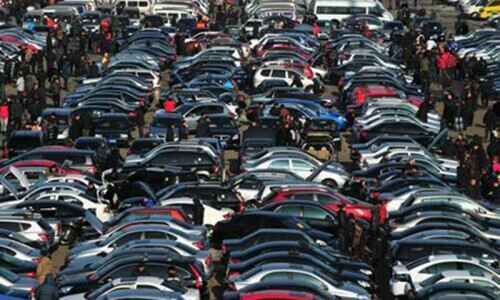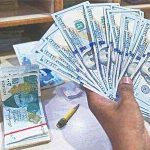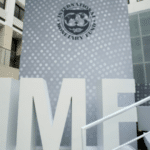KARACHI: Local automakers are finding it difficult to draw customers in with incentives like financing, registration discounts, and price reductions, while the market for imported secondhand cars is doing well.
H.M. Shahzad, chairman of the All Pakistan Motor Dealers Association (APMDA), asserted that 28,000 old cars were imported in FY24 from July to May, as opposed to 14,000–15,000 during FY23.
“Total imports will reach up to 35,000 units by the end of the current fiscal year,” he declared, asserting that the entire amount of used car imports in the departing fiscal year would bring in about $400 million in customs duties and other taxes for the government.
“The percentage of 660-1,000cc used car imports out of all used car imports is 80 percent,” he stated, attributing the increase in used car imports to the political and economic stability that followed the year of unrest.
The import of fully built-up (CBU) units, or motor cars, increased by 256 percent to $207 million in July–April FY24 from $58 million during the same time the previous fiscal year, according to data from the Pakistan Bureau of Statistics (PBS).
“Imports of new cars are also included in the PBS data above,” he stated.
Shahzad stated that extending the permitted age of vehicles from three to seven years for automobiles, including hybrids and electrics, and from five to seven years for SUVs and LCVs will enhance the policy for importing used cars under the transfer of residence, gift, and baggage schemes.
He asserted that all of these automobiles’ tariffs are paid in foreign currency.
According to him, importing 80 percent of secondhand automobiles (660–1000cc) also lessens the need for costly imported gasoline because low-engine-power cars get 22–24 km/l.
According to the head of APMDA, assemblers are importing fully and partially knocked down kits at a significant cost in foreign currency.
He said that bringing in used automobiles would put local automakers under intense pressure to lower their costs and end the threat of “on-money or premium” black marketing.
Locally assembled automobile sales fell 29 percent to 62,962 units in 10MFY24 from 88,260 units in the same period of the previous fiscal year.
In addition, vehicle financing fell in April for the 22nd consecutive month, from Rs239.4bn in March to Rs236bn.
The State Bank of Pakistan (SBP) released data showing that, by the end of June 2022, vehicle financing had decreased from Rs368 billion to Rs132 billion.
Dealers said that despite a high interest rate of 22 percent, there was still a demand for financing for old automobiles rather than newly constructed vehicles made locally.








